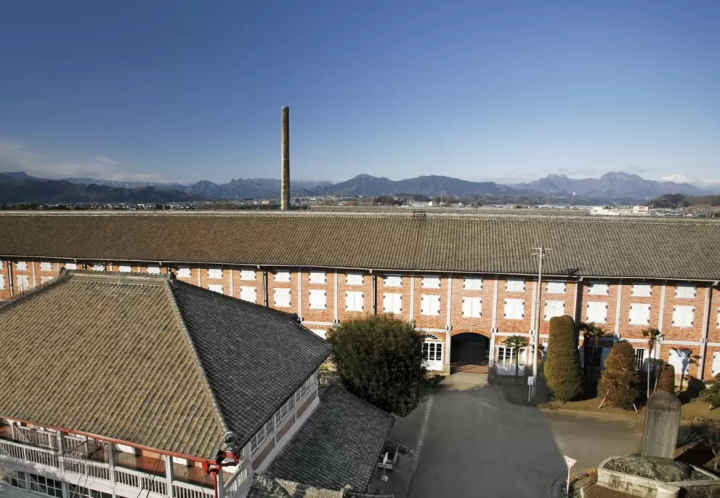Asakusa Shrine: The History of the Sensoji Temple Founders

Visiting Tokyo's Sensoji Temple? Don't miss the historic Asakusa Shrine next door. Discover the connection between these iconic Buddhist and Shinto sites.
Asakusa Shrine and Sensoji Temple
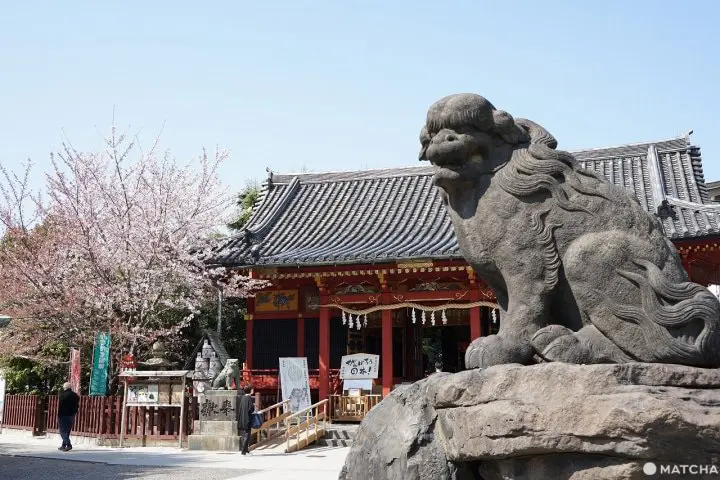
You can’t talk about Asakusa without mentioning the iconic Kaminarimon Gate and Sensoji Temple.
But sitting right beside them is Asakusa Shrine. A Shinto shrine and a Buddhist temple sharing the same grounds? It might seem unusual, but there is a deep history behind it.
This article explores the unique connection between the two and explains the key differences you’ll notice while visiting.
Asakusa Shrine Guide
1. Asakusa Shrine Visiting Hours
2. The Difference Between Asakusa Shrine and Sensoji Temple
3. The Features of Asakusa Shrine
4. The Unique Amulets of Asakusa Shrine
5. Cutting-edge Card Charms
6. Events and Festivals at Asakusa Shrine
1. Asakusa Shrine Visiting Hours
Asakusa Shrine is open 24 hours a day, allowing visitors to explore its serene grounds at any time. However, it's important to note that the amulet shop operates until 5:00 PM, so if you're interested in purchasing talismans or charms, be sure to visit before then.
Admission to the shrine is free, making it an accessible and welcoming destination for both locals and tourists seeking a peaceful retreat or spiritual experience in the heart of Tokyo.
For those visiting or learning about Japan for the first time, the difference between a Shinto shrine and a Buddhist temple may not be entirely clear, so please take a look at the following article to learn more.
2. The Difference Between Asakusa Shrine and Sensoji Temple
To better understand the difference between Asakusa Shrine and Sensoji Temple, we first need to review the history of Sensoji Temple. It was built in 628 AD, when, according to legend, a statue of the Holy Kanzeon Bodhisattva was discovered in the nearby Sumida River.
The statue was discovered by two fisherman brothers, and it is this pair of brothers who are enshrined as gods at Asakusa Shrine. The man who recognized the statue for what it was, Nakatomo Hajinoatai (an intellectual of his time), is also worshiped along with them there.
In short, Asakusa Shrine is dedicated to these three gods. For this reason, it is also known as the Sanja-sama (Shrine of the Three Gods), and the incredibly popular festival held there every May is called Sanja Matsuri.
3. The Features of Asakusa Shrine
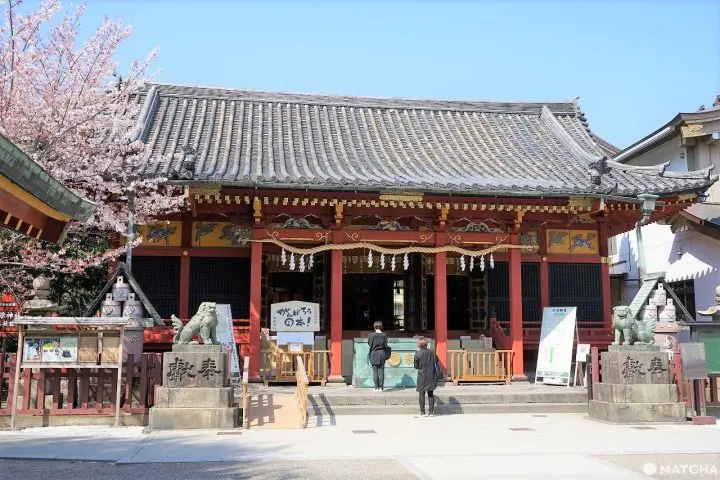
Most visitors to Asakusa Shrine come to pray for the happiness of their family, for protection against automobile accidents, success in business ventures, good health, or speedy recovery, and to pass their entrance exams.
Shingan joju (which means that whatever you wish for from your heart will be granted) is another part of the divine favor granted here, so nearly any wish is said to come true when made in earnest at Asakusa Shrine.

At the entrance sit a husband-wife pair of komainu, so it is also a good place to pray for good relationships between couples.

Inside Asakusa Shrine, there are countless images of sacred beasts. They are mostly fictional creatures and are symbols of peace, or are said to pray for the happiness of the people. On the upper left is a Hiryu, which has the body of a fish and wings, and presides over water.

The Kirin is a famous god of ancient China. It has the body of a deer, the head of a wolf, the tail of a cow, legs of a horse, and has horns. It is said to never step on either grass nor insects, and only appears when a great king appears.

The Sadaijin and Udaijin ward off evil.
4.The Unique Amulets of Asakusa Shrine
Numerous amulets or lucky charms are sold on the grounds, right next to the shrine buildings.With images and English explanations, it is easy to pick out just what you need.
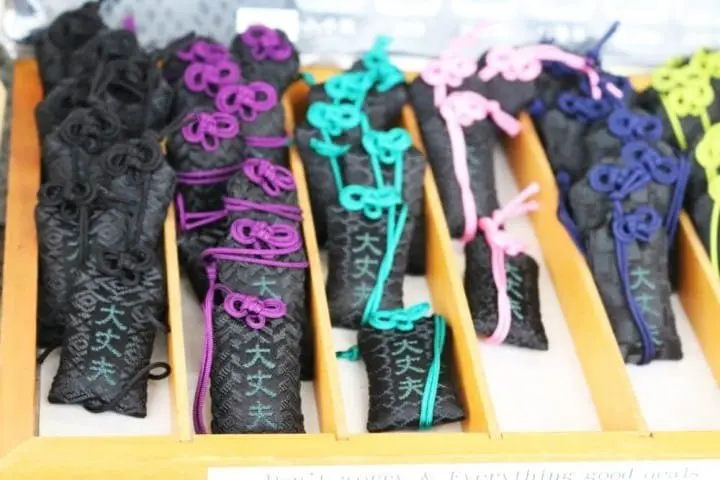
These pieces with 'daijobu' (大丈夫 - meaning "it will all be alright") written on them are quite popular.
5.Cutting-edge Card Charms

Asakusa Shrine also offers card charms that have had the spirits of the deities transferred into them. According to the priestesses, by making them into card shapes, people can carry them and receive the protection of the gods wherever they go.
The amazing thing about these cards is that you can use them to gather points in partner stores. You can use the points, but the ones that you collect go towards supporting the shrine itself.

If you tell them what you're looking for a the reception desk, they will bring you the application. Fill in your name and address.

Once you've filled everything in, either a priest or a priestess will prepare and present you with your card. It doesn't cost anything to make, but it's polite to make a monetary offering to show your appreciation.
After you're done at Asakusa Shrine, it's only a short walk next door to Sensoji Temple. Make sure you get your hands on one of the cards mentioned above; they're great souvenirs. If you find yourself in Asakusa, visiting both Asakusa Shrine and Sensoji Temple will surely make for a memorable day.
6.Events and Festivals at Asakusa Shrine
Asakusa Shrine, a prominent cultural landmark in Tokyo, hosts a variety of vibrant events and traditional matsuri (festivals) throughout the year, attracting thousands of visitors. One of the most famous celebrations is the Sanja Matsuri, held annually in mid-May to honor the three founders of Senso-ji Temple. This lively festival features spirited parades, portable shrines (mikoshi), and a festive atmosphere filled with music and dance.
Additionally, the shrine celebrates the Asakusa Samba Carnival in late August, which showcases Brazilian culture through dazzling parades with samba dancers in elaborate costumes, live music, and energetic performances. Together, these events not only celebrate the community’s spiritual beliefs but also provide a unique opportunity for visitors to immerse themselves in Japan’s rich cultural traditions and the lively spirit of Tokyo's diverse festivals.
Read also
Information
Asakusa Shrine
Address: Tokyo, Taito, Asakusa 2-3-1
Hours: 9:00-16:30
Closed: None
Nearest Station: 5-7 minute walk from Asakusa Station (Toei Asakusa Line/Metro Ginza Line/Tobu Isesaki lines)
Religion: Shinto
Phone: +81(0)3-3844-1575
Website: Asakusa Shrine
was born in Osaka, 1993. Studying abroad in New York. Supporting the currency of Japanese culture to all over the world is one of my life works. Based in New York/Osaka/Tokyo アメリカ/NYで留学中。西欧米中心のグローバリゼーションだけでなく、アジア、日本からのグローバリゼーションを目指す。































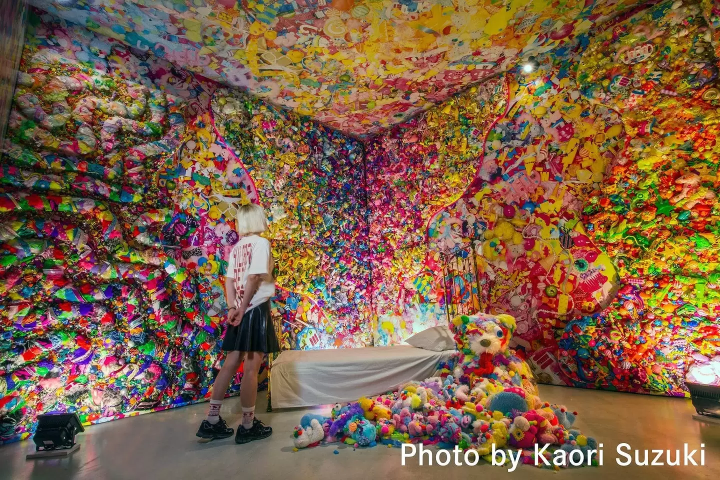
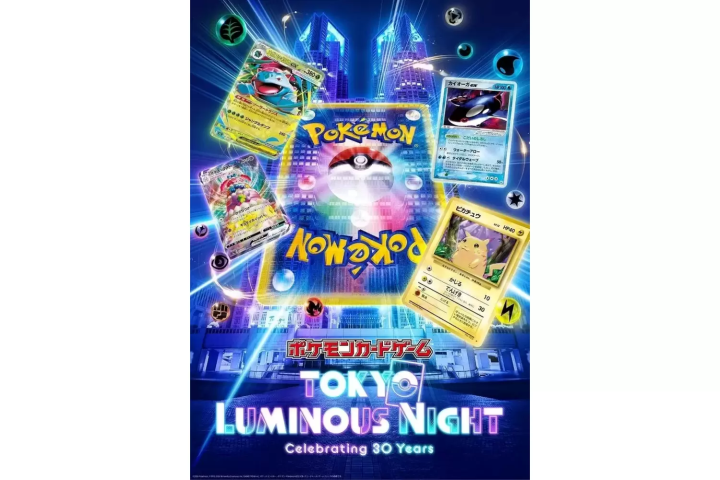








![[Southern Oita Prefecture (Usuki and Saiki)] A journey through fermentation and tradition. Oita Sustainable Gastronomy](https://resources.matcha-jp.com/resize/720x2000/2026/02/27-259975.webp)
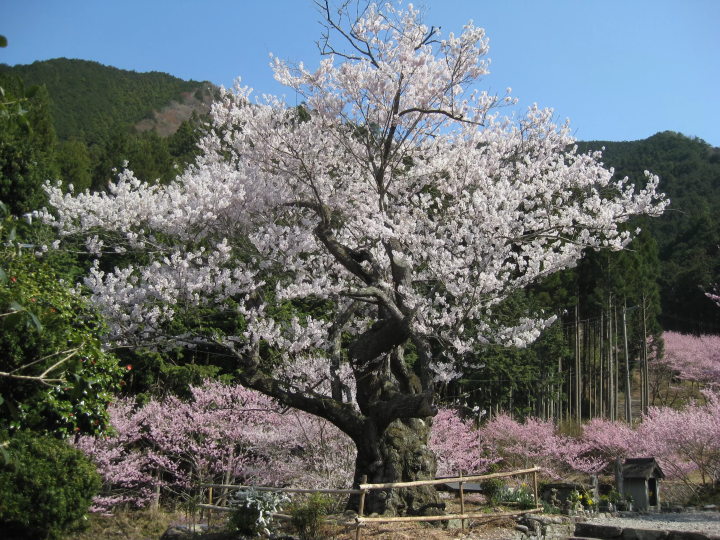
![[Hiroshima] ORIZURU Making at the Hotel / Sheraton Grand Hiroshima Hotel](https://resources.matcha-jp.com/resize/720x2000/2026/02/26-259811.webp)
![[Aichi] 30 minutes from Nagoya! 8 must-see tourist spots in Tokoname, the city of beckoning cats and pottery](https://resources.matcha-jp.com/resize/720x2000/2026/02/26-259808.webp)
